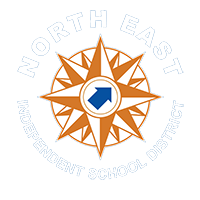Programs
Adapted Physical Education (APE)
This program is designed for eligible students with disabilities who cannot successfully participate in a regular physical education program. Students also participate in Special Olympics training, if appropriate. Physical education that is individualized and specially designed to address the needs of students with disabilities who require adaptations or modifications to be physically active, participate safely, and make progress toward Texas Essential Knowledge and Skills for Physical Education. The need for APE is based on student assessment.
Alternative Learning Environment (ALE)
This program is designed for students with cognitive deficits who require functional academics in a structured, consistent, small group setting combined with self-help, social skills, communication and motor development, in order to progress. The certified special education teacher teaches an alternate curriculum providing access to enrolled grade level Texas Essential Knowledge and Skills instruction that is vertically aligned and combined with life skills to meet students’ individual needs.
Co-Teaching
Equal collaboration between the general education and special education teachers to provide intensive support, including modification of the TEKS, as well as design, implement and monitor instruction of students with IEPs receiving content instruction and ensuring access to the grade level curriculum in a general education setting.
Deaf Education
This program serves students who are deaf or hard of hearing and require specialized instruction and support to access the curriculum. Services may be provided in a variety of settings depending on the student’s individual needs, including self-contained classrooms, resource support, or through collaboration in general education classes. Our teachers of the deaf and hard of hearing provide instruction focused on communication development, language acquisition, auditory training, and academic skills aligned with the Texas Essential Knowledge and Skills (TEKS). Additional supports may include sign language interpreters, amplification systems, and consultation with general education staff to ensure appropriate accommodations and modifications. The goal of Deaf Education is to equip students with the communication, academic, and self-advocacy skills needed for success in school and beyond.
Homebound & Hospital Programs
These programs are available to students who are expected to be confined at home or in a hospital, within NEISD boundaries, for a minimum of four consecutive weeks as documented by a physician.
In-Class Support
Support provided in a general education setting by a special education teacher or trained paraprofessional actively supporting students by providing accommodations as identified in the IEP. This support is designed to assist students in mastering grade level TEKS curriculum. This support is not designed to address modification.
Infant Program
This program is for students 0 to 3 who have been identified as visually impaired, auditory impaired, or deaf/blind.
Early Childhood Special Education (ECSE)
This program is for eligible students, ages 3 through 5, who have been determined by the ARD/IEP committee to require early academic intervention.
Redirection
This program is designed to provide a continuum of Special Education Services that enhance academic and social learning, and teach opportunities that will assist students receiving Special Education Services. Students will take ownership of their choices by demonstrating prosocial replacement behaviors and coping skills which will result in the development of socially accepted and independent adaptive skills.
Resources Classes
Resource classes are designed for special education students who require specially designed instruction related to core content or development of organizational, study, and/or social skills.
Visual Impairment
Services are provided to children from birth through age twenty-two, who have been identified as visually impaired. The unique needs of the child with visual impairment are addressed for children of all developmental levels.
This is an itinerant program providing instruction in disability-specific areas, including, but not limited to, the use of braille and large print, optical devices, screen-reading software, organizational skills and aspects of the expanded core curriculum. Instructional materials that complement course-content and classroom activities are provided, along with consultative services that address accommodations and modifications to classroom activities.

